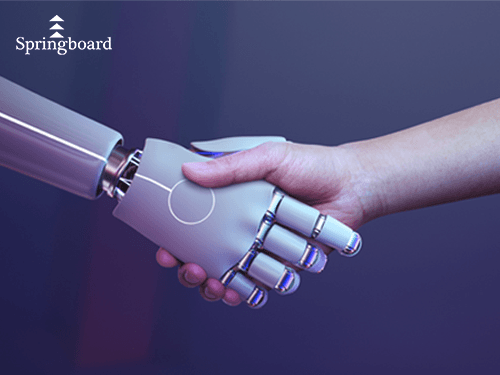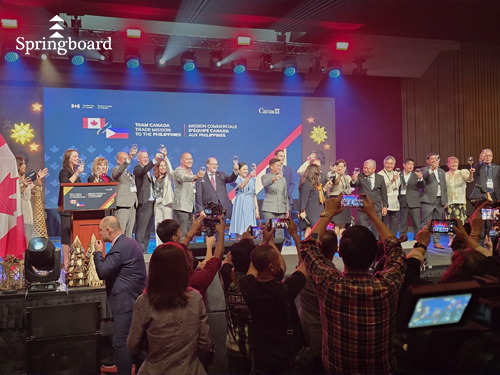June 14, 2024 — 4min read
The Role of AI in Transforming Talent Acquisition
Artificial Intelligence (AI) has rapidly transformed numerous aspects of our lives, from personalized shopping experiences to smart home devices. In the realm of recruitment, AI is making significant strides, revolutionizing how companies attract, assess, and hire talent. As organizations strive to find the right candidates efficiently and effectively, AI tools are becoming indispensable. This blog explores the multifaceted role of AI in recruitment, highlighting its benefits, challenges, and future potential

Introduction to AI in Recruitment
AI is having a significant impact on the employment and talent acquisition industries. Companies are using AI solutions to help them locate the top applicants more quickly and streamline their recruitment processes.
AI is being used heavily in automated resume screening. (AI) can swiftly review resumes and determine which applicants are fit for the roles, based on their experience and qualifications. Saving HR workers from having to manually sort through mountains of resumes. In order to truly comprehend the content of resumes and job descriptions, natural language processing is used.
Predictive analytics is another way in which AI is being used with applicants. These technologies can predict how likely an applicant is to perform well and stay with the organization over time by crunching data from previous recruiting achievements. Crazy, huh? These insights help recruiters make more informed hiring decisions.
Another field where AI is being used is in video interviews. Certain platforms have the ability to evaluate a candidate’s soft skills and cultural fit by examining their facial expressions, tone of voice, and even the language they use. In addition to the human interviewer’s assessment, the AI offers a thorough analysis.
The advantages of utilizing AI in hiring are pretty compelling. It improves productivity by automating tedious tasks like resume screening. Companies can save a great deal of money and effort. In addition, because AI is data-driven, it can improve hiring quality by minimizing human bias and making decisions based on impartial standards.
However, there are some major challenges and moral issues to be aware of. When handling sensitive candidate data, data protection must come first. If AI models aren’t created appropriately, there’s also a chance that biases may be perpetuated. Effective governance is crucial.
Further advances in fields like natural language processing will enable AI to become far better at understanding human conversation. More customization may be in store, as AI will probably modify each candidate’s hiring procedure based on their preferences.
In the end, artificial intelligence will influence both the hiring process and the larger field of human resources. Even if AI won’t ultimately replace human recruiters, it is undoubtedly changing the way companies find talent. Through strategic use of this technology, companies can significantly improve their hiring efficiency.
What are your thoughts on the role of AI in recruitment? Have you experienced its impact in your organization? Share your insights and experiences with us, you can email us at [email protected] or go to website Springboard Philippines. Also don’t forget to follow our socials for more updates on the latest trends!
The Role of AI in Transforming Talent Acquisition
Artificial Intelligence (AI) has rapidly transformed numerous aspects of our lives, from personalized shopping experiences to smart home devices. In the realm of recruitment, AI is making significant strides, revolutionizing how companies attract, assess, and hire talent. As organizations strive to find the right candidates efficiently and effectively, AI tools are becoming indispensable. This blog explores the multifaceted role of AI in recruitment, highlighting its benefits, challenges, and future potential
June 14, 2024 — 4min read

Introduction to AI in Recruitment
AI is having a significant impact on the employment and talent acquisition industries. Companies are using AI solutions to help them locate the top applicants more quickly and streamline their recruitment processes.
AI is being used heavily in automated resume screening. (AI) can swiftly review resumes and determine which applicants are fit for the roles, based on their experience and qualifications. Saving HR workers from having to manually sort through mountains of resumes. In order to truly comprehend the content of resumes and job descriptions, natural language processing is used.
Predictive analytics is another way in which AI is being used with applicants. These technologies can predict how likely an applicant is to perform well and stay with the organization over time by crunching data from previous recruiting achievements. Crazy, huh? These insights help recruiters make more informed hiring decisions.
Another field where AI is being used is in video interviews. Certain platforms have the ability to evaluate a candidate’s soft skills and cultural fit by examining their facial expressions, tone of voice, and even the language they use. In addition to the human interviewer’s assessment, the AI offers a thorough analysis.
The advantages of utilizing AI in hiring are pretty compelling. It improves productivity by automating tedious tasks like resume screening. Companies can save a great deal of money and effort. In addition, because AI is data-driven, it can improve hiring quality by minimizing human bias and making decisions based on impartial standards.
However, there are some major challenges and moral issues to be aware of. When handling sensitive candidate data, data protection must come first. If AI models aren’t created appropriately, there’s also a chance that biases may be perpetuated. Effective governance is crucial.
Further advances in fields like natural language processing will enable AI to become far better at understanding human conversation. More customization may be in store, as AI will probably modify each candidate’s hiring procedure based on their preferences.
In the end, artificial intelligence will influence both the hiring process and the larger field of human resources. Even if AI won’t ultimately replace human recruiters, it is undoubtedly changing the way companies find talent. Through strategic use of this technology, companies can significantly improve their hiring efficiency.
What are your thoughts on the role of AI in recruitment? Have you experienced its impact in your organization? Share your insights and experiences with us, you can email us at [email protected] or go to website Springboard Philippines. Also don’t forget to follow our socials for more updates on the latest trends!
The Role of AI in Transforming Talent Acquisition
Artificial Intelligence (AI) has rapidly transformed numerous aspects of our lives, from personalized shopping experiences to smart home devices. In the realm of recruitment, AI is making significant strides, revolutionizing how companies attract, assess, and hire talent. As organizations strive to find the right candidates efficiently and effectively, AI tools are becoming indispensable. This blog explores the multifaceted role of AI in recruitment, highlighting its benefits, challenges, and future potential

June 14, 2024 — 4min read
Introduction to AI in Recruitment
AI is having a significant impact on the employment and talent acquisition industries. Companies are using AI solutions to help them locate the top applicants more quickly and streamline their recruitment processes.
AI is being used heavily in automated resume screening. (AI) can swiftly review resumes and determine which applicants are fit for the roles, based on their experience and qualifications. Saving HR workers from having to manually sort through mountains of resumes. In order to truly comprehend the content of resumes and job descriptions, natural language processing is used.
Predictive analytics is another way in which AI is being used with applicants. These technologies can predict how likely an applicant is to perform well and stay with the organization over time by crunching data from previous recruiting achievements. Crazy, huh? These insights help recruiters make more informed hiring decisions.
Another field where AI is being used is in video interviews. Certain platforms have the ability to evaluate a candidate’s soft skills and cultural fit by examining their facial expressions, tone of voice, and even the language they use. In addition to the human interviewer’s assessment, the AI offers a thorough analysis.
The advantages of utilizing AI in hiring are pretty compelling. It improves productivity by automating tedious tasks like resume screening. Companies can save a great deal of money and effort. In addition, because AI is data-driven, it can improve hiring quality by minimizing human bias and making decisions based on impartial standards.
However, there are some major challenges and moral issues to be aware of. When handling sensitive candidate data, data protection must come first. If AI models aren’t created appropriately, there’s also a chance that biases may be perpetuated. Effective governance is crucial.
Further advances in fields like natural language processing will enable AI to become far better at understanding human conversation. More customization may be in store, as AI will probably modify each candidate’s hiring procedure based on their preferences.
In the end, artificial intelligence will influence both the hiring process and the larger field of human resources. Even if AI won’t ultimately replace human recruiters, it is undoubtedly changing the way companies find talent. Through strategic use of this technology, companies can significantly improve their hiring efficiency.
What are your thoughts on the role of AI in recruitment? Have you experienced its impact in your organization? Share your insights and experiences with us, you can email us at [email protected] or go to website Springboard Philippines. Also don’t forget to follow our socials for more updates on the latest trends!





